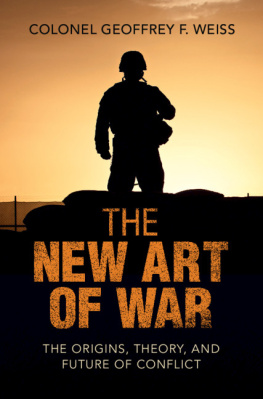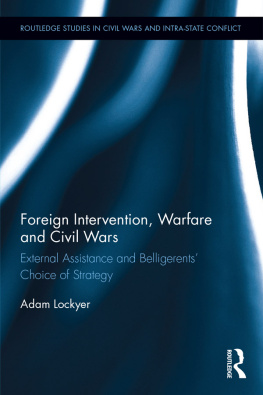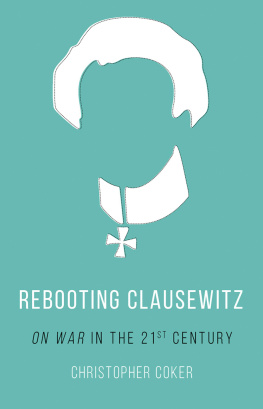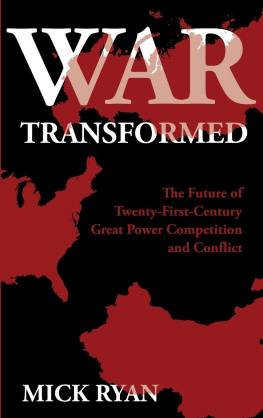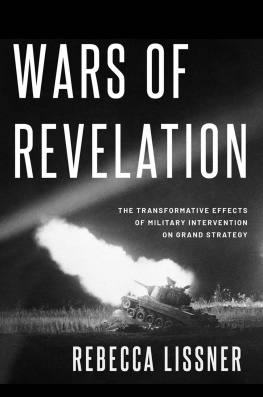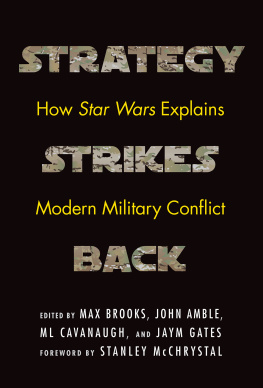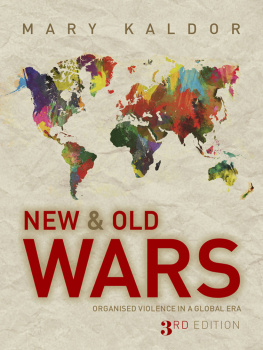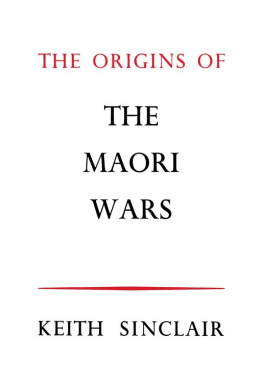The New Art of War
Many of wars lethal failures are attributable to ignorance caused by a dearth of contemporary, accessible theory to inform warfighting, strategy, and policy. To remedy this problem, Colonel Geoffrey F. Weiss offers an ambitious new survey of wars nature, character, and future in the tradition of Sun Tzu and Clausewitz. He begins by melding philosophical and military concepts to reveal wars origins and to analyze war theorys foundational ideas. Then, leveraging science, philosophy, and the wisdom of wars master theorists, Colonel Weiss presents a genuinely original framework and lexicon that characterizes and clarifies the relationships between humanity, politics, strategy, and combat; explains how and why war changes form; offers a methodology for forecasting future war; and ponders the permanence of war as a human activity. The New Art of War is an indispensable guide for understanding human conflict that will change how we think and communicate about war.
Geoffrey F. Weiss is an active duty colonel with over twenty-seven years of service in the United States Air Force. He is a graduate of the US Marine Corps School of Advanced Warfighting and a distinguished graduate of the National War College. A former wing commander with multiple tours in the Middle East, Colonel Weiss is presently serving in the Pentagon on the Joint Staff where he advises the Chairman of the Joint Chiefs of Staff on global operations and crisis response from the National Military Command Center.
The New Art of War
The Origins, Theory, and Future of Conflict
Colonel Geoffrey F. Weiss

University Printing House, Cambridge CB2 8BS, United Kingdom
One Liberty Plaza, 20th Floor, New York, NY 10006, USA
477 Williamstown Road, Port Melbourne, VIC 3207, Australia
314321, 3rd Floor, Plot 3, Splendor Forum, Jasola District Centre, New Delhi 110025, India
103 Penang Road, #0506/07, Visioncrest Commercial, Singapore 238467
Cambridge University Press is part of the University of Cambridge.
It furthers the Universitys mission by disseminating knowledge in the pursuit of education, learning, and research at the highest international levels of excellence.
www.cambridge.org
Information on this title: www.cambridge.org/9781108837644
DOI: 10.1017/9781108946902
Geoffrey F. Weiss 2021
This publication is in copyright. Subject to statutory exception and to the provisions of relevant collective licensing agreements, no reproduction of any part may take place without the written permission of Cambridge University Press.
First published 2021
Printed in the United Kingdom by TJ Books Limited, Padstow Cornwall
A catalogue record for this publication is available from the British Library.
ISBN 978-1-108-83764-4 Hardback
Cambridge University Press has no responsibility for the persistence or accuracy of URLs for external or third-party internet websites referred to in this publication and does not guarantee that any content on such websites is, or will remain, accurate or appropriate.
For my parents, Rick (19392019) and Marylou, who have lived life as a harmony of tensions, sometimes at war, mostly at peace, often on my mind, and always in my heart.
&
For those who risk their lives for others.
If you wish to see the truth, then hold no opinions for or against anything as long as you remain in one extreme or the other you will never know Oneness.
Buddhist Proverb
The truth is the Whole .
Georg W. F. Hegel
The views expressed herein are those of the author and do not necessarily reflect the official policy or position of the Department of the Air Force, Department of Defense, or the US Government.
Contents
Figures
Preface
The journey of a thousand miles begins with one step.
Taoist Proverb
For many, war is an abstraction, a curiosity. For others, it is part of a daily struggle for existence. For still others, it is a livelihood or even an aspiration. But what do we really know about war, and why does it matter? In the late 1960s, my father, who due to health reasons never experienced war firsthand, named me after his friend and mentor, Geoffrey Reginald Gilchrist Mure, Warden of Merton College, Oxford (194763). Frederick, my fathers first name, is also my middle name. Ironically, Geoffrey originates from the Old German word for peace, and Frederick means peaceful ruler, yet I have devoted most of my professional life and this book to the subject of war. Perhaps no one understands fire or disease better than the fireman or physician, professionals dedicated to battling these menaces. The same is often true of warriors and war. And though some warriors are enamored with war, I am no more a fan of it than a doctor is a lover of disease or death. Still, how can we hope to prevent wars or prevail in wars thrust upon us without understanding war? I love peace enough to fight for it, which is why I devoted the majority of my life to military service and ultimately why I wrote this book. The New Art of War has been many years in the making, and its creation has been a rewarding though unlikely journey. Despite having settled on a military career (somewhat by accident), I never imagined I would write a book on war; after all, so much has been written already. Yet, the more I have studied history, war theory, and strategy the more I perceived a pressing need for a fresh approach. The result is The New Art of War .
The Problem
As I stated, I had never intended to write a book on war. However, there are troubling deficiencies within the current body of war theory and consequently in our approach to strategy and warfighting. War is dangerous, unpredictable, and deadly. It has claimed hundreds of millions of lives, decimated landscapes, War is not a phenomenon anyone should engage in without knowing its nature.
Clear as Mud
In A History of Military Thought (2001), historian and war expert Azar Gat writes, New and significant intellectual constructions usually emerge at times of fundamental change or paradigmatic shifts, when prevailing ways of interpreting and coping with reality no longer seem adequate. We face that reality now. The complex evolution of war, theory, and strategy, from the classical era to the present, has deposited layers of terms, concepts, and principles stacked like geological strata. As a result, getting at what we really need to know amounts to a laborious dig that, frankly, few have the patience or intellectual discipline for. Instead, most simply pick a few shiny items off the top or attempt to delve deeper into material they do not fully understand. Unfortunately, this state of affairs has caused us to accept some theoretical shortfalls and blinded us to others. Solving these problems and accelerating our understanding of war into the present age demands a holistic reassessment of war theory and strategy. This alone will enable us to resolve the following deficiencies: (1) the inaccessibility of existing theory; (2) the incoherent language and explanation of wars forms; and (3) the lack of contemporary theory development.
Regarding the first, though ample theory is available, its presentation complicates comprehension and application. Ancient origins, disparate styles, and myriad interpretations impede the direct application of traditional war theories to military operations and strategy. As historian Hew Strachan observes, Strategic theory has therefore failed to provide the tools with which to examine the conflicts which are in hand. This undermines trust in otherwise sound theory and frustrates analysis by blurring the line between theoretical defects and execution errors.

